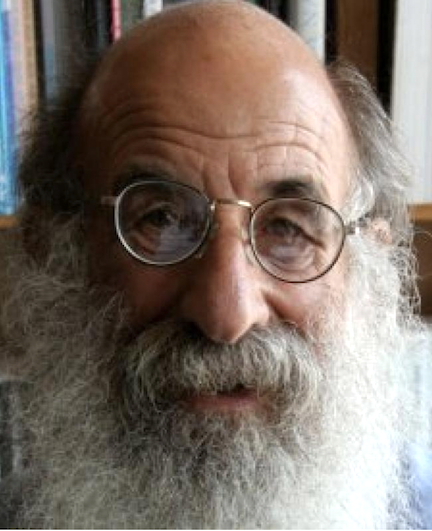On this date in 1940, author and publisher Malcolm Margolin was born in Boston to a Lithuania-born homemaker and an American father and was raised in an Orthodox Jewish home. He attended the Boston Latin School and Harvard College, majoring in English.
After graduation, two years in Puerto Rico and a trip to San Francisco during the 1967 Summer of Love, he and his wife Rina moved to the West Coast for good. They eventually settled in Berkeley, Calif., and Margolin wrote for such publications as Science Digest and The Nation.
He was working for the park district on trail maintenance when he started to get book contracts for volumes on parks, ecology and Native Americans. He founded Heyday Books, an independent nonprofit publisher, in 1974. Where did the name come from?
They had named their son Reuben Heyday “because that’s just what hippies did,” Margolin said. He liked “Reuben” for its old Jewish sense and “Heyday” because it had a sense of celebration and wonderment. (San Francisco Examiner, Jan. 18, 2015) When it came time to name his small company, he picked Heyday as a placeholder, a name still in place. (The Margolins named their daughter Sadie Cash and their other son Jacob Orion.)
In 1978 he published The Ohlone Way: Indian Life in the San Francisco-Monterey Bay Area, now a classic. “Before the coming of the Spaniards, Central California had the densest Indian population anywhere north of Mexico,” according to its introduction.
Margolin retired in 2016 as publisher, and the company by 2020 was publishing about 20 books a year. “Heyday promotes civic engagement and social justice, celebrates nature’s beauty, supports California Indian cultural renewal, and explores the state’s rich history, culture, and influence,” said its website. Heyday has published Pulitzer Prize-winning authors Gary Snyder and Wallace Stegner, Rebecca Solnit, former U.S. Poet Laureate Robert Hass and Ursula Le Guin, the fantasy and science fiction writer.
In a 2016 interview with The Jewish News of Northern California, Margolin said his Orthodox upbringing gave him a sense of scholarship and entrepreneurialism along with a distrust of institutions. “Today, I have no religious beliefs whatsoever, but I don’t eat pork.”


